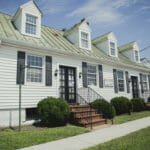Why do we need the police involved in an accident where it is clear what happened? How can they help sort your accident out? What happens if they are not there? These are all good questions that you may not be thinking about at the accident scene….but maybe you should.
Information Gathering
The first question is why do we need the police at the accident. This seems obvious at first, as any accident scene may need police on the scene to coordinate first responders or to regulate safe, post-accident traffic flow. But beyond that, the police officer is there to facilitate information exchange. This is how you, the accident victim, get vital information about the person who hit you, as well as the insurance coverage information for the defendant driver. In the end, your recovery will come from the other’s driver’s insurance company. Without the police, the parties at the accident risk leaving that scene of confusion without the information they need going forward.
Documentation of Facts
Of equal importance is what the police can do to sort out the accident. This goes beyond information exchange as the police can help define who is liable. They do this by interviewing the parties, examining the accident scene and writing up a police report. In the police report, the officer describes the accident, as well as any improper actions taken by the at-fault driver. The police officer also writes any traffic tickets associated with the accident. Where the police officer writes a ticket to the at-fault driver, it is very difficult for the driver (or his or her insurance company) to avoid liability for the accident. So in this way, the police officer helps to set up your automobile accident case from the very beginning.
When There’s No Officer
Now what happens when the police are not called or decline to get involved? This can be devastating to your case. While it may be clear to you who is at fault, and the other driver may even be apologizing, the insurance company on the other side is free to investigate the accident and draw their conclusions as to liability. And where there is no police report or traffic ticket, the insurance companies tend to think pretty long and hard before admitting anything. Similarly, when your accident occurs in a parking lot, the police may be there but may still decline to get involved because it is “private property.” Again, you face a larger battle on the liability side in these instances.
In the end, the police who respond to your accident scene play many roles and often times make the difference when the insurance company is deciding whether to accept or deny liability on behalf of their insured.

